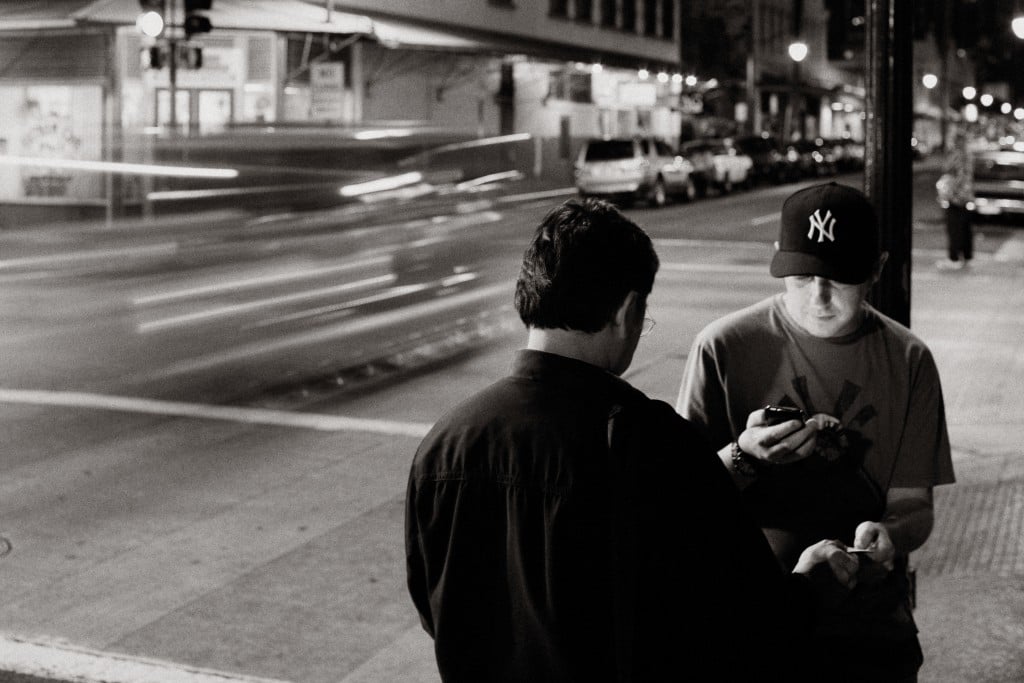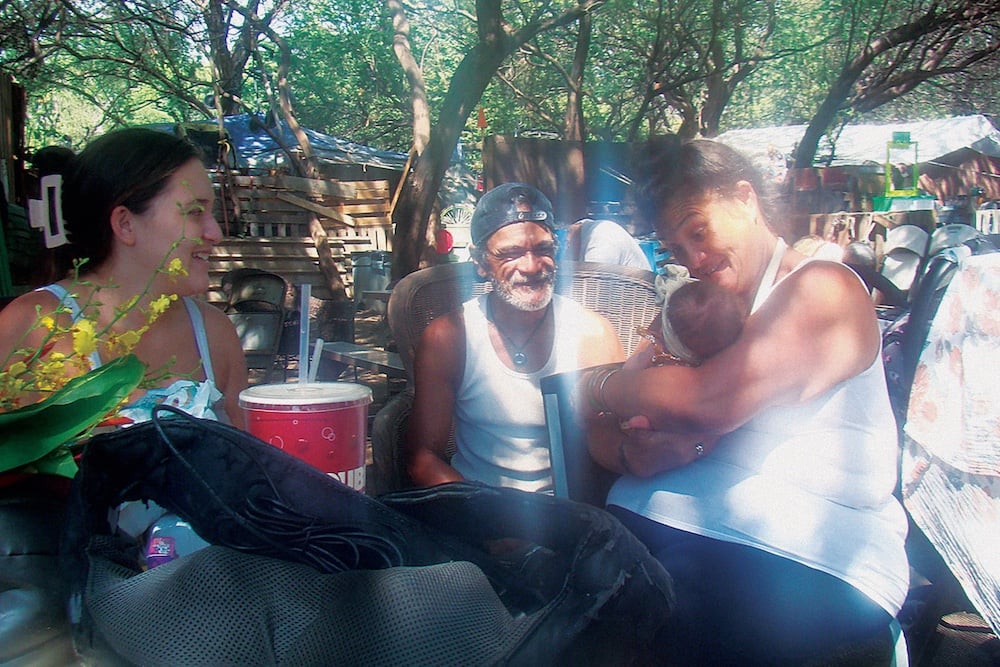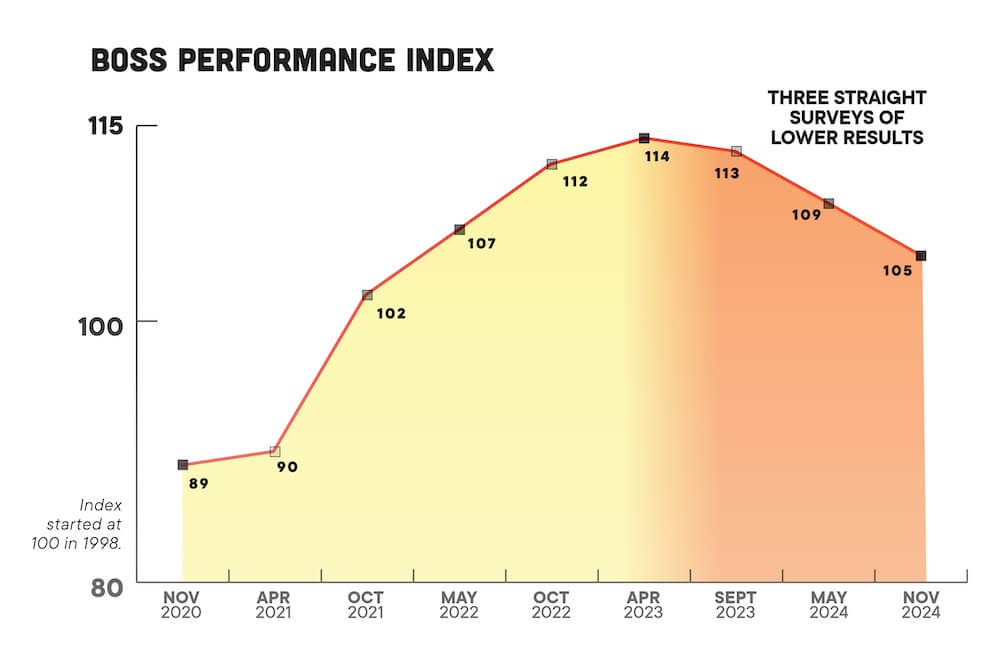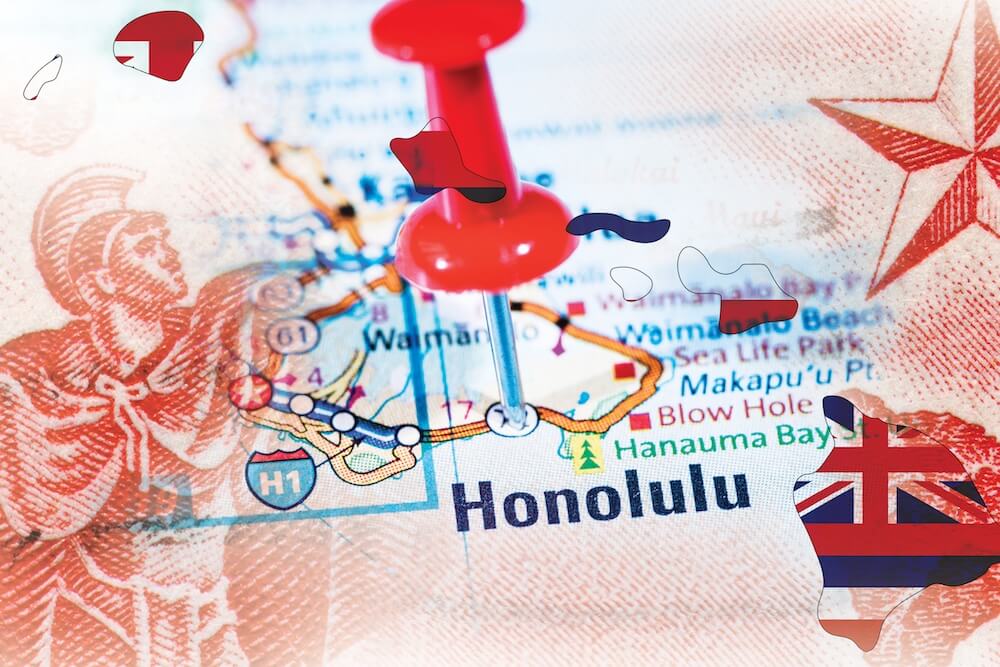Hawaii’s Underground Economy

One billion dollars a year. That’s the estimated taxes in Hawaii that don’t get paid by contractors and waiters, accountants and attorneys, hairdressers and everyone else who hides all or part of their cash income.
Just about everyone contributes knowingly or unknowingly to Hawaii’s underground economy. Maybe your mechanic cuts you a deal if you pay cash, or you buy produce from a vendor at the farmers’ market who doesn’t have a general excise tax license. There’s nothing wrong with paying cash or operating a cash-only business, provided the business reports all of its taxable income. Anyone who is caught evading taxes could end up in jail.
“If you turn yourself in now, you might get off easier,” warns Kurt Kawafuchi, state director of taxation.
But the chances of getting caught are slim since cash deals are hard to track, and many who do get caught only suffer minor penalties. So the cheating continues.
If everyone paid his or her fair share of taxes, the state might not have struggled so much over this year’s $1.2 billion budget deficit, reduced public services and Furlough Fridays. But you can look at it another way: Hawaii’s cash economy also keeps thousands of hardworking people out of the unemployment lines and current on their mortgages. And overall economic activity would decline if everyone did pay all their taxes because some businesses would not be able to survive and people would have less money to spend. Lowell Kalapa, executive director of the Tax Foundation of Hawaii, argues that the state’s gray economy is just a symptom of a bigger problem: overly high taxes.
Nobody likes to pay taxes, but most people are honest and do it anyway, says Stephen Hironaka, a former IRS agent who now supervises the state’s team of criminal tax investigators. The federal tax compliance rate was 86 percent in 2001, according to the IRS National Research Program. That includes late payments and recoveries from enforcement, but still leaves 14 percent unpaid.
Legitimate vs. cheating
Businesses that cheat on their taxes have an unfair advantage over those that follow the law. Kyle Chock, executive director of the Pacific Resource Partnership, an alliance between unions and the construction industry, says unlicensed contractors and tradespeople who take cash off the books also drive down wages for the entire industry.
“To stay in business, the honest companies have to pay their workers less to compete with the guys who are cheating and that’s bad for everyone,” Chock says. In 2008, Pacific Resource Partnership launched the Play Fair in Hawaii campaign to encourage developers to adhere to the rules governing the state’s construction industry.
One of the people Chock is fighting against is someone we’ll call the Contractor, who asked that his name not be used because he is breaking the law. The Contractor started his construction business eight years ago by doing cash jobs on weekends. “We were getting paid anywhere from $150 to $300 per day,” he recalls. “I was making more money on the weekend than my weekly paycheck.” By the time he was 25, he was earning $120,000 a year while most of his friends were making $30,000 or less. In 2006, he had his best year, grossing $800,000 and reporting only half for taxes. Today, he works year-round even while much of the construction industry is at a standstill.
“I give (cash) customers three options. Option 1 is to do the job completely on the books.” About 20 percent will choose this option. Option 2 is to do the work half on the books and half off. “My name will not appear on any of the project-related paperwork, but the price of the job will be reduced by about half, and I’m not responsible for the structure or any liability once the job is over.” He still gets all the required permits and buys the materials at his discounted contractor’s rate, which will go on the books. But only half of the labor will be documented to save both parties money.
Half of his cash customers choose Option 3, which is 100 percent off the books. The customer buys all the materials and the Contractor charges $200 per worker per day – about $100 a day less than the legitimate price for labor. The customer pays cash and all the workers are paid $1,000 cash each Friday for a 40-hour week. A homeowner would save $4,000 on a renovation that takes two workers four weeks to finish.
Chock warns consumers about hunting for bargains. “Say you hire an electrician to install a ceiling fan and pay him cash,” he says. “In two weeks, if something goes wrong with the fan, you may not be able to get it repaired if you don’t have a receipt and there’s no warranty. It’s a buyer-beware scenario.”
Ron Taketa, financial secretary and business representative for the Hawaii Carpenters Union, encourages the state to target contractors and employers who exploit workers by paying them cash and not paying state-mandated insurance for workers’ compensation, disability, unemployment and health care. “They cheat the state labor department, their workers and the state tax office at a time when we should be focused on increasing our state revenues,” Taketa says. “You can’t catch every unemployed guy running around with a pickup truck and a cell phone, but I certainly think clamping down on contractors who are part of the systematic problem would be the answer.”
Why cheating occurs
It seems inevitable that when the economy is down and unemployment is up, tax evasion increases. But tax investigator Hironaka isn’t sure that’s the case. “Whether the economy is up or down, people are still going to cheat,” he says.
Honolulu criminal defense attorney Myles Breiner disagrees and suspects that in a down economy, when competition for work is stiffer, more people will underreport their tax liabilities or won’t file at all. “I think we’re going to see more and more tax evasion cases in the years to come,” he says. “People are very resentful of the taxes they pay so they are going to be more creative at evading them.”
Resentful or not, you should pay what the law requires, says Hironaka. “As a resident of this state, you can’t take advantage of the services government offers and not be willing to fork over what you owe to pay for those services.”
The Tax Foundation’s Kalapa agrees that, by not paying their share, delinquent taxpayers shift the burden to the rest of us, but he says Legislators must share some of the blame. “If the tax burden wasn’t so heavy, then I think more people would abide by the laws,” he says. “We have some of the highest tax rates in the nation, so don’t you think people will try to evade having to pay such a heavy burden?”
In 2006, the U.S. Treasury recommended that tax laws be reformed and simplified to reduce opportunities for intentional evasion and make it easier for the IRS to enforce tax laws. Attorney Breiner describes the tax code as a labyrinth of exceptions and subexceptions. “People get CPAs because it’s full of archaic rules and it’s not hard to be confused by them.”
Breiner says it’s a tough pill to swallow when a tree trimmer with a modest income gets slammed with heavy taxes while a CEO making millions hires a hotshot accountant to find loopholes to hide income. “It’s sad because it’s the people at the bottom end of the scale that are getting taxed to death.”
But Chock isn’t accepting that as an excuse to cheat. “Sure, we’re in a tough situation and everybody’s hurting right now. But high taxes are not an excuse for bad or illegal behavior. It doesn’t give people permission to go out and cheat and start gaming the whole system.”
Who’s doing it?
“As a former prosecutor, defense attorney and, simply, as a member of the business community, it seems to me that everyone at some level participates in the gray economy,” Breiner says. “The thought that we have sort of a gray economy is a misnomer. The economy in Hawaii is gray. Period.”
Hironaka says most tax evaders are educated people, and that the problem is not simply in blue-collar fields such as construction, landscaping and plumbing. Doctors and CEOs are also guilty.
Businesses often prefer cash because checks can bounce and credit-card transactions cost money. But false income reporting is easier in industries where cash is often tendered, such as restaurants, bars or stores. “There is a temptation to not report when only cash is involved because who would know?” Hironaka says. “But then again, you can’t assume wrongdoing just because a business only takes cash.”
Since opening in 1962, Buzz’s Steak House in Kailua on Oahu has accepted only cash and checks. Manager Mani Schneider, daughter of founders Buzz and Bobby Lou Schneider, says, “When my parents applied to get a credit-card-processing system, the bank turned them down because their credit wasn’t good enough.”
Decades later, Buzz’s payment policy has remained unchanged. “It’s just the principle with my mom,” Mani Schneider says. “People always assume that we’re scamming here, but every transaction goes through Digital Dining (point-of-sale software that tracks restaurant transactions) so it’s all registered.”
Hironaka says unreported rental income is a huge problem for the state. “Let’s say a room is rented for $600 a month, times 12, that’s $7,200, times 4 percent, that’s about $300 a year,” he says. “Who’s going to check on paying GET on $300? But multiply that by the tens of thousands of people who are doing it and that $300 is not $300 anymore – it’s $3 million.”
In the past 15 years, the state Tax Department has won more than 360 criminal tax convictions, 80 percent of which were for failing to file GET returns. Those who get investigated are often those who file inaccurately or inconsistently, or who pay their income taxes but not their GET.
“The problem today is that there’s no shame anymore,” Hironaka says. “Tax avoidance or tax cheating is an acceptable method these days. How often do people inflate their numbers by just a little? To a lot of people, it’s perfectly fine to cheat a little on their tax returns.”
It’s all about trust
The Contractor says he approaches new customers carefully. “There’s a level of trust that needs to be there because the last thing I need is for them to turn me in,” he says. He’ll first make a legitimate bid. That often elicits a response along the lines of, “Ooooh, that’s more than I wanted to spend. Can we do anything to bring down the price?” Only if he feels comfortable with the customer will he then offer his cash-only discounts.
The Contractor knows he could be caught for tax evasion, but has decided the risks are worth it. “When I started off, I was broke, so I did what I had to do to survive. But, after a while, you get used to the money and the lifestyle and it kind of just grows from there,” he says. “I don’t tell people how to pay me. They approach me and the way I see it, I’m helping them and they’re helping me.”
Despite hiding much of his income, the Contractor has paid up to $30,000 a year in state and federal taxes. “Believe me, the government is getting a lot of my money,” he says. “I’m probably contributing a lot more than most people and at least I’m working. I could be sitting at home collecting unemployment and welfare checks but I’m not. Trust me, everybody is doing it. The guys that do everything by the books, they’re the ones not working right now.”
Enforcement
The state’s criminal tax conviction rate has been 94 percent over the past 15 years, but Hironaka says most tax-evasion cases never go to trial. Over the past decade, Breiner says, he’s defended only a handful of cases, not because tax evasion is rare, but because violators usually settle out of court.
An investigation normally starts with a notice in the mail or a knock at the door from a government agent. Typically, the IRS comes to collect first, then the state investigates by subpoenaing your business records and conducting interviews. If the state decides to press charges, a guilty plea will result in a fine and/or jail time. Plead not guilty and the case goes to trial – but that’s only happened five times in the past 15 years.
Although TV ads often say, “We can settle your tax debt with the IRS for pennies on the dollar,” Breiner says that’s rare and cautions people not to expect any sympathy from the federal or state governments.
The government will do whatever it takes, just short of throwing you out of your home, to get its money, he adds. However, the government also considers whether or not it’s worthwhile to fight a drawn-out court battle to collect the full amount versus settling quickly for less. “In my experience, they try to work with people who have jobs and are making an honest effort to pay them back.”
Hironaka has mixed feelings about punishment. He believes the penalties are stiff enough but that judges aren’t consistent in their sentencing. For example, he’s seen assault cases end in probation while white-collar criminals get jail sentences. But an attorney who didn’t pay his GET for five years was only ordered to pay $2,500. For that attorney, Hironaka says, the small fine was just part of the cost of doing business. “There aren’t enough deterrents, from our perspective, for people not to cheat on their tax returns, because, if they get caught, they just have to pay a small fine and move on. The (potential) penalties are appropriate but the enforcement is the challenge.”
Tax investigations are often prompted by public complaints when, for example, a contractor does shoddy work and refuses to fix it. Hironaka says disgruntled former employees, competing businesses and ex-spouses also frequently file complaints about tax evaders.
“People also get into trouble when they brag about things,” Hironaka says. “So if you cheat on your returns, it might be a good idea to keep it to yourself.”
The state also relies on computer matching to detect false reporting and filing errors, and to ensure people who are required to do so file both their income and GET returns. In 2005, the state prosecuted 15 real estate agents for underreporting or failing to pay GET.
One of the biggest cases ever investigated in Hawaii started when a tax agent saw a man driving a luxury vehicle and decided to research the driver. “The agent ran the car’s plates and found out the guy was driving a $100,000-plus car and was only claiming a percentage of that for income so the numbers didn’t match up,” Hironaka says. “The point of the story is that we’re ever-vigilant.”
Hironaka and his team of criminal tax investigators might be ever-vigilant, but they’re also under-funded. Four people handle all criminal tax investigations for the state and prosecute 30 to 40 tax cases a year. From 1996 to 2009, the courts have assessed $2.3 million in fines and are in the process of collecting $25 million in delinquent taxes.
A new law last year gave the state Tax Department more resources and tools to investigate suspected violations, but the original plan for nine positions was reduced to three by budget cuts. Ronald Randall, state taxation compliance administrator, says the new unit has focused on cash-based businesses that have underreported their tax liabilities. So far, the group has combed through Fort Street Mall, Aloha Tower, Chinatown and other areas.
Randall says the unit receives about 10 complaints a day from the public and has investigated about 200 cases, from auto repair shops to beauty salons, and has assessed about $4 million in underreported taxes.
“People who cheat are most likely going to do so until they’re caught,” he says. “Our goal is to be vigilant and put out as many deterrents as possible to motivate people to comply with the rules.”
Due to limited resources, the tax department rarely investigates illegal activities such as prostitution, gambling and drug sales because the cases are much harder to prove. “We don’t have the resources, manpower or time to do undercover investigations, although we wish we could,” Hironaka says. “Besides, there are so many legal businesses not paying their fair share that we don’t have time to go into the illegal sector.”
The Tax Gap
State tax director Kurt Kawafuchi says the national tax gap – the amount of owed taxes that go unpaid – has been estimated to be about $400 billion.
“As a rule of thumb, we usually use one-half of 1 percent to calculate Hawaii’s portion of the tax gap. Experts have said the cash economy is about half of the tax gap so you do the math.”
That means Hawaii’s tax gap is $2 billion a year, and half of that is attributed to the cash economy, $1 billion.
The Main Reason People Cheat
People cheat on their taxes for a variety of reasons: Some actually don’t have the money, others just don’t want to part with it and many do it because they believe they won’t get caught. David Callahan, author of “The Cheating Culture: Why More Americans Are Doing Wrong to Get Ahead,” says many people assume that the most common gripes are that taxes are too high or complicated, but, actually, the biggest complaint is that the rich don’t pay their fair share. Callahan separates people into two main groups: the winning class and the anxious class. The winning class is made up of the wealthy and the anxious class consists of people who struggle financially.
Some people in both groups cheat, he says, but members of the anxious class do it mainly because they believe the rich have the tools to evade taxes and aren’t paying their fair share.
Mr. Contract Hire
“My previous employer is the king of hiring contract workers,” says a former assistant at a small manufacturing company, who asked not to be named. “The funny thing is, most of them aren’t contract hires; they’re full-time employees just being paid under the table.”
Mr. Contract Hire’s company employs about 10 full-time employees, half of them paid in cash. They all work at least 40 hours a week on-site, which disqualifies them from being independent contractors. “I worked for him for four years and he did this the whole time to get out of paying payroll taxes, workers’ comp and medical,” the former assistant says.
Mr. Contract Hire’s jobs pay minimum wage, so many candidates are uneducated and many receive government assistance. He normally offers these prospective employees two options:
• They can get paid $7.25 an hour and receive full medical coverage, but he emphasizes that the government will take one-third of their income for taxes; or
• If they don’t need medical benefits, they get paid $8 an hour cash, tax free.
“He knows that a lot of the workers are covered by Quest medical insurance, and so are their kids,” the assistant says. “If Quest finds out the person is employed full time and being offered medical benefits, it would jeopardize their chances for receiving coverage.”
By choosing the second option, the employee takes home more pay while still qualifying for government assistance, while Mr. Contract Hire saves on taxes and insurance. The company has been audited several times and, although the auditor discovered that Mr. Contract Hire was lying about his workers, he received nothing more than a slap on the wrist.
Penalties for Evasion
For each year that you evade your state taxes, the penalty is up to a $100,000 fine andfive years in jail. The government could also seize property and liquidate your assets.
The $10,000 Tell
Veterans of the underground economy know that lots of cash raises red flags at banks. By law, U.S. financial institutions must file a Currency Transaction Report for each deposit, withdrawal, currency exchange or other transaction of $10,000 or more.
Most bank systems automatically create a CTR electronically and bank employees can note if they believe the transaction is suspicious or fraudulent. Customers are not told about the $10,000 threshold unless they ask, and once the transaction begins, they cannot reduce the amount to prevent a CTR. In fact, an attempt to “structure” their transaction to an amount near, but not over, $10,000 is punishable by federal law and may prompt bank personnel to closely monitor their account.
Taxpayers Beware
State criminal tax investigator Stephen Hironaka says the state knows that many tax preparers file false returns on behalf of their clients. “You hear about it all the time,” he says. “A friend will tell you, ‘Go to this person and you’ll get a big return.’ ”
If caught, that preparer will be penalized and the taxpayer will have to pay the correct tax. Hironaka says the longest jail term ever secured by the state was 10 years on a tax preparer who filed false returns for an entire family.
Hironaka’s advice: If someone else prepares your taxes, be sure to check the return for anything that seems suspicious. If your refund is significantly higher or lower than the previous year and your employment situation hasn’t changed, be wary.
Report Violators: Call the state Tax Department’s hotline at 587-1456 to report suspected violators. Tips can remain anonymous.
Month of Forgiveness
Last year, from May 27 to June 26, the state let eligible taxpayers pay back taxes while avoiding penalties, with 50 percent less interest and the potential to avoid criminal prosecution. Here’s what the Tax Fresh Start Program accomplished:
$14.4 million collected;
$4.2 million in GET;
$3.9 million in income tax;
870 taxpayers participated, with an average of three tax years foregiveness each.
Hawaii’s Ignored Tax
The use tax is one of the least understood taxes even though everyone who purchases goods outside of Hawaii – through mail-order or online, for example – may be subject to this tax. Because sellers in Hawaii pay GET on their gross incomes, they are at a price disadvantage with out-of-state businesses that don’t pay the tax. Therefore, the use tax equalizes the tax on transactions by requiring those purchasing goods from out-of-state sellers to pay a 4 percent tax, or half of 1 percent for wholesalers.
“Technically, you’re even required by law to pay a use tax on things you buy on amazon.com,” Hironaka says. “But if you buy two DVDs a month, are you going to file a use-tax return and pay 4 percent of $25? All Internet sales are subject to a use tax, but nobody does it.”
Hironaka says the use tax is geared more toward people and businesses that make large purchases, such as machinery or manufacturing equipment, from out-of-state sellers. But even he admits hardly anybody files a use-tax return and, unless it’s a big-ticket item, the state will probably never know about it or investigate the case.






